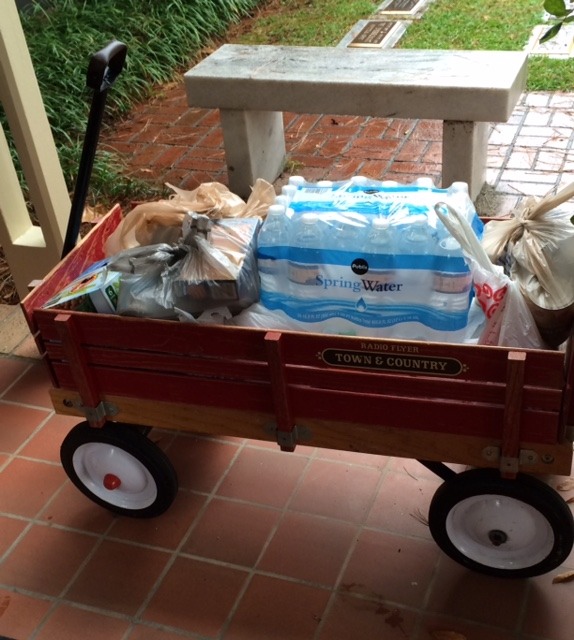We make a living by what we get, but we make a life by what we give. Winston Churchill
Would you consider yourself a generous person? If so, you might find this blog very affirming. If not, it’s never too late to developing a new virtue. We now have the science of generosity telling us that generous people are happier, healthier, and feel more connection to others. Most of us want to be happy, healthy and connected, right?
Generous people are happier, healthier, and feel more connection to others.
Let’s start with a definition. Generosity is the virtue of giving or offering others what is good for them freely and abundantly, with no strings attached and the expectation of nothing in return . It is described as a moral orientation towards life and has many synonyms: liberality, lavishness, magnanimity, beneficence, benevolence, hospitality, and big-heartedness. The virtue is explicitly encouraged by historical, religious, and intellectual leaders, from Confucius, who said generosity of the soul is one of the 5 necessary virtues, to Abraham of the Old Testament, who entertained strangers believing he was entertaining Yahweh, to Mohammed who insists that when entertaining strangers you are to give them your very best, to Jesus who said our hearts will follow our treasures, (not the other way around as most of us believe) and told stories like the prodigal son which might better be entitled the generous father. Pagan cultures also promote generosity. Aristotle named generosity as the third most important virtue after courage and temperance.
In doing some research for this blog, I got really excited reading The University of Notre Dame’s science of generosity initiative. http://generosityresearch.nd.edu/ This initiative, which started in 2009, is a multidisciplinary effort to look at the causes and effects of generosity. It appears generosity can be learned, and that there is a direct CAUSATION between being generous and being happy. Sociologists Christian Smith and Hilary Davidson report the research of this project in the book The Paradox of Generosity. Here are a few examples from the research. People who volunteer 5.8 hours per month report being very happy, whereas people who volunteer .06 hours per month report being unhappy. Marriage partners who report the happiest marriages score higher on a generosity quiz than those who report being unhappy. (Take the quiz here. ) 41 % of people who give away 10% of their income report rarely or never experiencing depression. Generous people also report being physically healthier. http://www.newrepublic.com/article/119477/science-generosity-why-giving-makes-you-happ
As you can see, generosity is not just about giving away money, although the importance and impact of that cannot be overlooked. In my religious tradition, we talk about giving of your time, your talents, and your treasure. Here are some ways you can be generous:
Relational Generosity: Be present and available. When you are with someone, be with them. Put your technology down. Look them in the eyes. Do little things for another that are not necessary but that make life better. Many organizations need people who know how to just be present with others. One of my favorite writers, Henri Nouwen, worked at the L’Arche Community in Canada. This is a community for mentally disabled adults. The motto there is “Don’t just do something. Stand there.” Are you someone who can “stand there” with someone else? You can be generous with your encouragement, with active listening, with thoughtfulness.
Don’t just do something; Stand there.
Generosity of Talent: What gifts and skills do you have that you can give away? Are you good at seeing a big picture? Where can that gift be used? Are you a good organizer? Many charities need people to help them organize. Can you sew, sing, bake, clean, build, think, create, navigate technology, write, play an instrument, teach? Any gift you have can be given away to the right people, for the right amount of time, with a good amount of pleasure.
Environmental Generosity: How can we give back to our earth which gives so much to us? Can we be generous with our recycling efforts? Could we be more generous by simplifying our carbon footprint? I noticed last week after spending an afternoon in my yard that I felt connected again to my surroundings. You cannot love something that you have no connection to. Get more connected to your environment and respond with generosity.
Generosity to “the other”: In the research it appears that being generous with your family doesn’t actually count as being generous . In order for generosity to have the causative effect of bringing a better quality of life not only to the receiver but to the giver, we have to cross the threshold and go beyond what is comfortable. We have to help “the other”, people who are not us, who are different than us, and this then makes us generous. I might add it also makes us tolerant, thoughtful, and intellectually smarter.

It is in the sustained practice of generosity that we become more whole, more connected, and more healed. Click To Tweet
Now I might be getting ready to tell you the most important part. Being generous once in a while, like at the holidays, doesn’t yield any real results for the giver, although perhaps the recipients of your generosity will be happier. Generosity, like so many other virtues, must be a steady practice if it is to have an impact on our lives. The giving must be sustained over time. So if you want to increase your generosity, you may want to pick a particular person or charity to donate your time, talent, and treasure in an ongoing manner. If you pledge to a church or organization and get in the habit of giving there, I believe you will come to understand the verse, “For where your treasure is, there will your heart be also.” Matthew 6:21. If you want to be a more generous friend or partner, make it a point to do something everyday that would be considered generous. Remember, you are asking for nothing in return. There are no strings attached. It is in the sustained practice of generosity that we become more whole, more connected, more healed.
What would your life be like if you could be 1000 times more generous? Think about it, and increase your generosity, because Life is Messy and Life is Marvelous.
Amy
PS. In the time I spent gathering information for this blog, I listened to several captivating TedTalks about generosity. Here are a few of the titles in case you want to learn more.
What if we could lead a life of excessive generosity? Jeff Shinabarger http://tedxtalks.ted.com/video/What-if-We-Could-Lead-a-Life-of
Excellence Through Generosity. Gilmore Junio https://www.youtube.com/watch?v=psN_qlfhdws
The Key to Generosity. Rachel Chong. https://www.youtube.com/watch?v=aiM2BobJk_U
The Impact of Generosity. Wendy Steele https://www.youtube.com/watch?v=ufp5iGh0agA
The Age of Generosity. Kathrine Aspass https://www.youtube.com/watch?v=-sDsAlPyh5g
Designing For Generosity: Nipun Mehta
https://www.youtube.com/watch?v=kpyc84kamhw

